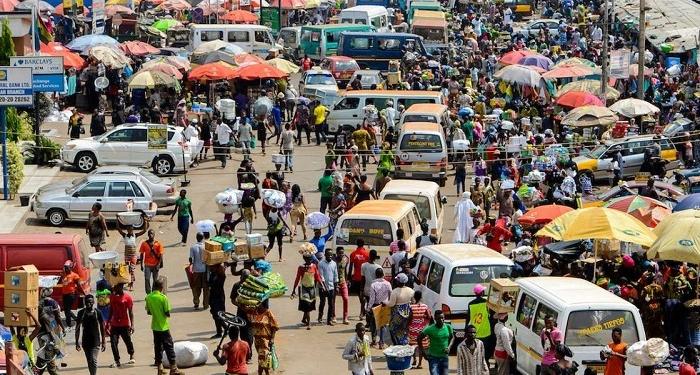Ghana’s Poverty Rate Drops to 25.9% in 2024 Amid Growth in Services, Expanded Social Spending – IMF
Ghana’s poverty rate declined marginally in 2024 to 25.9%, down from 26.4% in 2023, the International Monetary Fund (IMF) has disclosed in its 4th Review under the Extended Credit Facility (ECF) Arrangement with the country.
The measure, based on the international poverty line of US$2.15 per person per day, reflects a modest but notable improvement in living standards for a section of the population. The Fund attributes the drop to stronger-than-anticipated GDP growth in 2024, particularly within the services sector and, to a lesser extent, agriculture.
Additionally, the IMF cited the Ghanaian government’s expanded investment in social protection programmes as a critical factor in driving down poverty levels.
Boost in Social Protection Funding
The Fund noted a significant increase in budgetary allocation for social protection initiatives under the 2025 Budget, rising by 0.34 percentage points to 0.91% of GDP.
This increase, according to the IMF, is directed at four flagship programmes that form part of the structural benchmarks of the ECF-supported programme: the Livelihood Empowerment Against Poverty (LEAP), the Ghana School Feeding Programme (GSFP), the Capitation Grant, and the National Health Insurance Scheme (NHIS).
With technical and financial support from the World Bank, Ghanaian authorities are working to improve the targeting efficiency of the LEAP cash transfer programme. The goal is to increase the number of beneficiary households from 350,000 to 400,000 by end-September 2025, while preserving the real value of the transfers through automatic indexation to inflation.
Strategic Use of Social Investment
The IMF highlighted that increased funding for the GSFP, NHIS, and Capitation Grant in the 2025 fiscal year is expected to yield several social dividends. These include support for basic education among the poor, mitigation of high food inflation, procurement of essential vaccines and medicines, and the roll-out of new NHIS initiatives.
The government is also intensifying efforts to reduce delays in the disbursement of budgeted resources to programme beneficiaries, an issue that has historically undermined the impact of social protection initiatives.
Positive Outlook With Caution
While the decline in poverty is a welcome development, the IMF’s findings also point to the fragile nature of Ghana’s socio-economic recovery. Sustained improvements will depend heavily on macroeconomic stability, efficient public expenditure, and consistent delivery of targeted welfare support.
The report’s findings bolster the government’s case for prioritising inclusive growth and poverty alleviation through well-targeted fiscal interventions—particularly as Ghana navigates post-debt restructuring recovery and macroeconomic reforms under the ECF programme.








